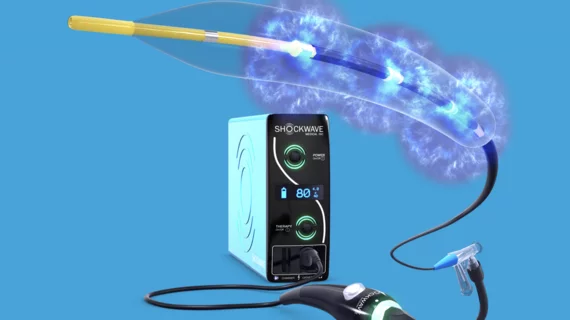Boston Scientific’s deal to acquire Shockwave Medical reportedly hits a snag
Boston Scientific has been exploring a potential acquisition of Shockwave Medical, the California-based healthcare company known for its intravascular lithotripsy (IVL) technology, but those talks may have reached a standstill.
According to a new report from StreetInsider, a source close to the situation has revealed that Boston Scientific and Shockwave Medical are unable to agree on a price. Traders certainly took the source’s insights seriously: Shockwave Medical’s stock price fell more than 6% as a result of the report, and Boston Scientific’s stock price jumped nearly 3%.
When Bloomberg first reported on the situation, the site speculated that Boston Scientific acquiring Shockwave Medical would be one of the biggest deals in Boston Scientific’s history, rivaled only by a 2006 deal the company made to acquire Guidant Corp. for more than $27 billion.
Shockwave Medical making an impression
Shockwave Medical has made a significant impression on the interventional cardiology space in recent years thanks to the success of its IVL technology, which is now approved by the U.S. Food and Drug Administration for the treatment of both severely calcified coronary artery disease and peripheral artery disease.
Also, when the Society for Cardiovascular Angiography and Interventions (SCAI) issued updated recommendations saying severely calcified lesions could be treated at facilities with no on-site surgical backup, this opened the door for coronary IVL to be performed at every cath lab in the United States.
The company is expected to share its latest earnings data late Monday, May 8, after the market has closed for the day. In addition, a “fireside chat” featuring the company’s management team has been announced for Wednesday, May 10, at the BofA Securities 2023 Healthcare Conference.

